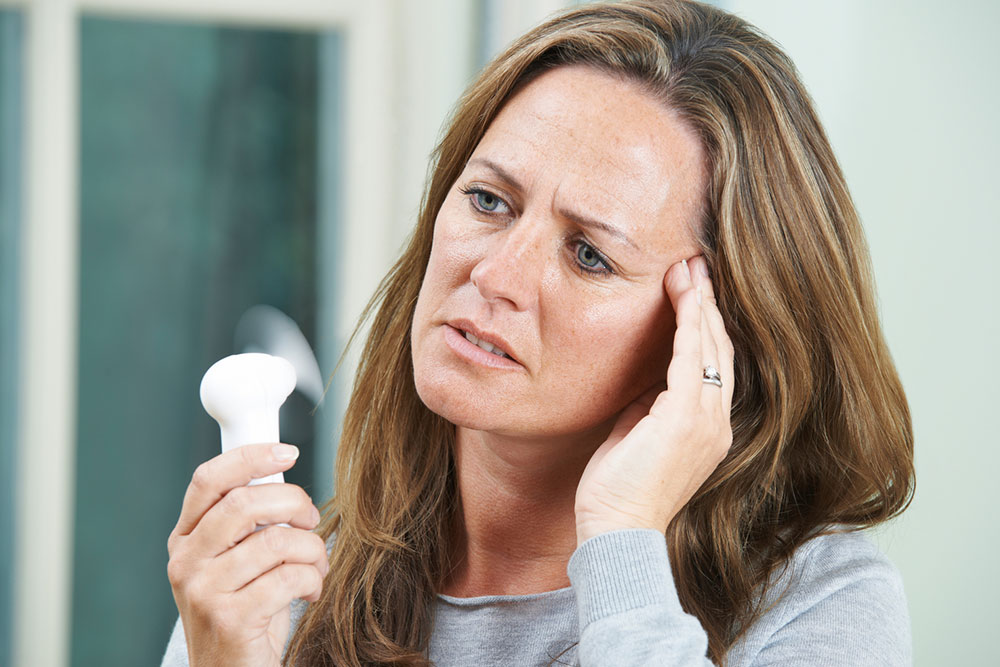4 Common Causes of Menopause
A woman’s body undergoes several changes once she hits puberty, and at some point during puberty, menstruation begins. The onset of menstruation indicates that the woman has transitioned into adulthood and is capable of becoming pregnant. Most women menstruate from the age of 12 to 50, and menopause usually occurs in women who are in their 40s. Menopause is an equally significant juncture in a woman’s life as the body again undergoes a series of changes, most of which are quite difficult to adapt to.

Just like menstruation is a natural phenomenon, menopause is a natural biological process as well. However, the physical symptoms of menopause are more severe than the ones women experience during menstruation. Moreover, even the emotional symptoms are magnified, and a woman’s physical and mental health is significantly affected.
It is common knowledge that menopause occurs when a woman reaches a particular age, but it is also important to know what leads to menopause. This allows women to determine ways to ease their menopause symptoms. The major causes of menopause are as follows:
Natural decline of reproductive hormones: In the late 30s, a woman’s ovaries start producing less estrogen and progesterone – these are the hormones that regulate menstruation. This results in the natural decline of fertility. Furthermore, in the 40s, the menstrual cycles become longer or shorter, heavier or lighter, more or less frequent, until it stops completely. When a woman’s period stops, it implies that the ovaries aren’t producing eggs, which is why women stop getting their period. This decline of estrogen and progesterone levels can lead to several bodily changes. For instance, vaginal dryness occurs due to reduced estrogen levels, and this affects a woman’s libido as sex becomes increasingly painful. In such cases, the doctor might prescribe INTRAROSA®, which is an approved medication by the Food and Drug Administration (FDA). It is used to treat moderate to severe pain women experience after menopause. However, it is recommended that you always consult your doctor before taking this medication.
Hysterectomy: Surgical procedures like a total hysterectomy can cause premature menopause. This procedure involves removing the uterus and the ovaries and can cause immediate menopause that is accompanied by the symptoms of menopause. In certain cases, most symptoms of menopause can be managed with lifestyle changes and therapy. However, symptoms such as vaginal dryness can lead to painful sex, and this continues to negatively affect a woman’s libido.
In such cases, opting for INTRAROSA® can be effective. It contains dehydroepiandrosterone (DHEA), a hormone produced by the body’s adrenal glands. It remains inactive until it comes in contact with vaginal or other cells. Once it is stimulated, it starts the production of estrogen and testosterone. Moreover, INTRAROSA® even improves the elasticity and pH levels in vaginal tissues, which makes sexual intercourse less painful.
Chemotherapy and radiation therapy: Treatment procedures for cancer have several side effects, and one of them is premature menopause. Additionally, chemotherapy and radiation therapy can induce menopause. Women often start experiencing the symptoms of menopause, such as hot flashes, during the course of treatment or immediately after it. However, premature menopause and impact on fertility might not be permanent. In case premature menopause is permanent, women will experience all the major symptoms of menopause, such as chills, hot flashes, vaginal dryness, weight gain, and hair thinning. Often, to ease into their menopause, women have to make major lifestyle alterations and even resort to medications to combat the symptoms of menopause.
Primary ovarian insufficiency: About one percent of women who experience menopause before the age of 40 suffer from primary ovarian insufficiency. This condition occurs when the ovaries fail to produce the required levels of reproductive hormones, and it is often triggered by genetic factors or an autoimmune disease. Women suffering from primary ovarian insufficiency are recommended hormone therapy. This therapy is recommended until the women reach the natural age of menopause. It is administered with the intention of protecting their brain, heart, and bones. In addition, they have to make essential changes to their lifestyle.
When dealing with premature menopause, to combat symptoms like painful sex or vaginal dryness, the doctor might prescribe INTRAROSA®.
Menopause is a daunting phase in every woman’s life, and it takes time to come to terms with the various physical and psychological changes that set in. However, with ample support from family and regular follow-ups with the doctor, menopause can become less appalling.